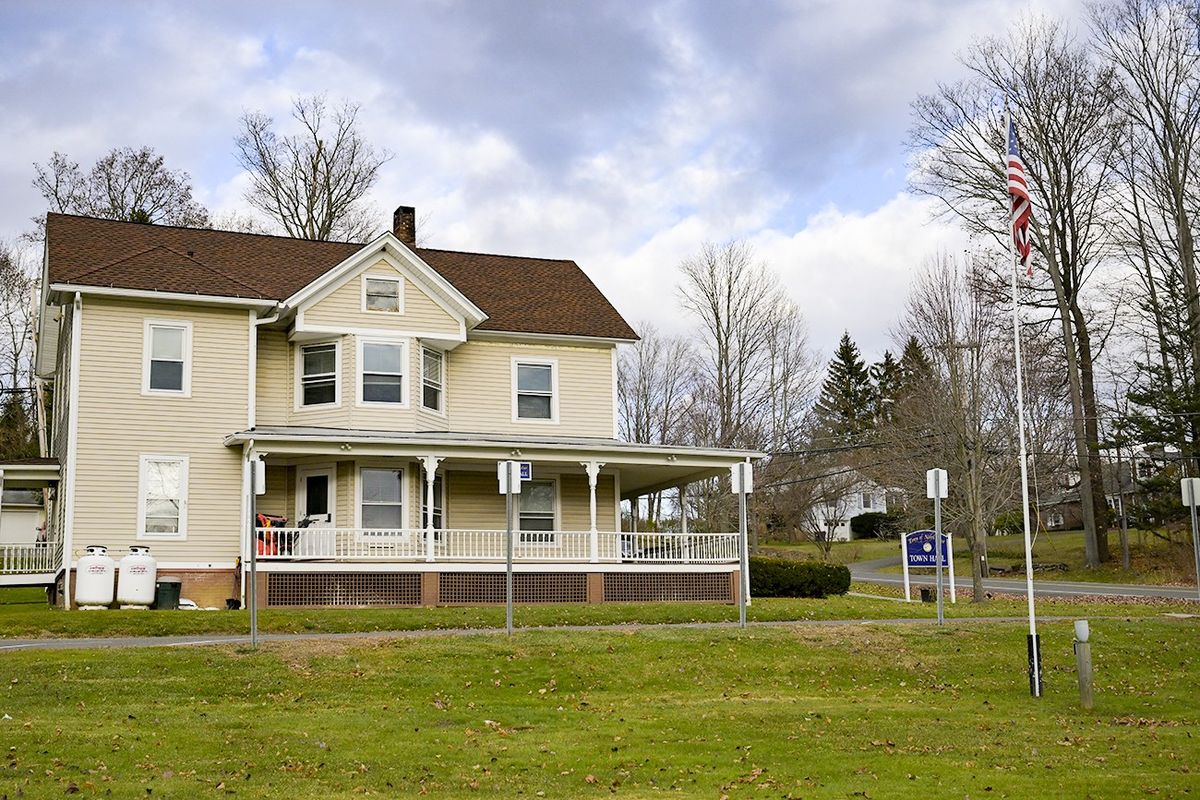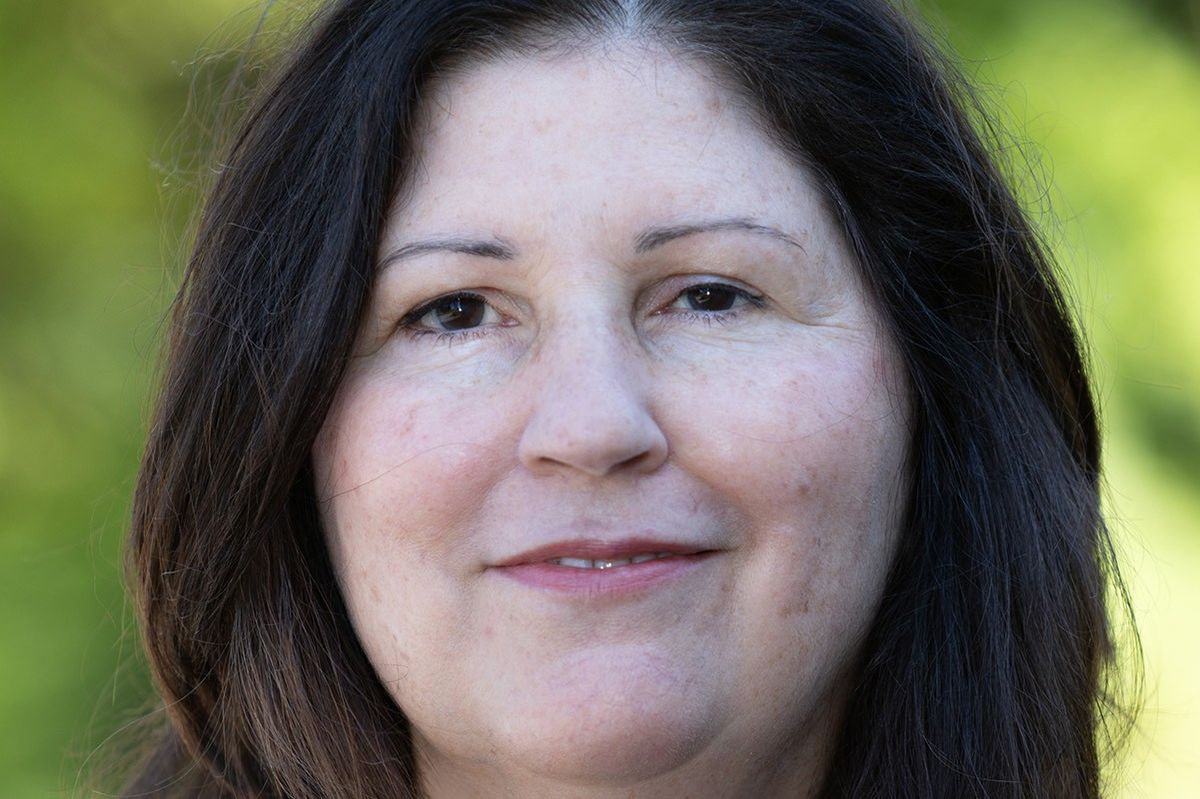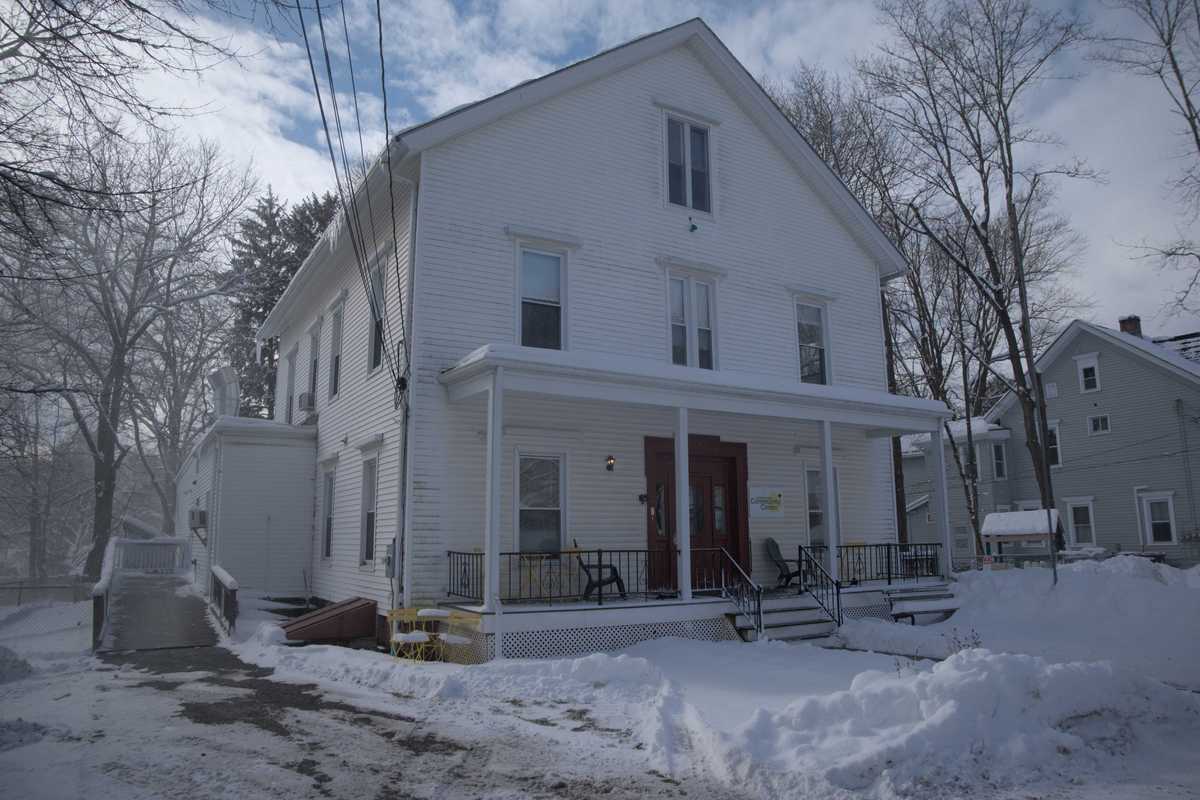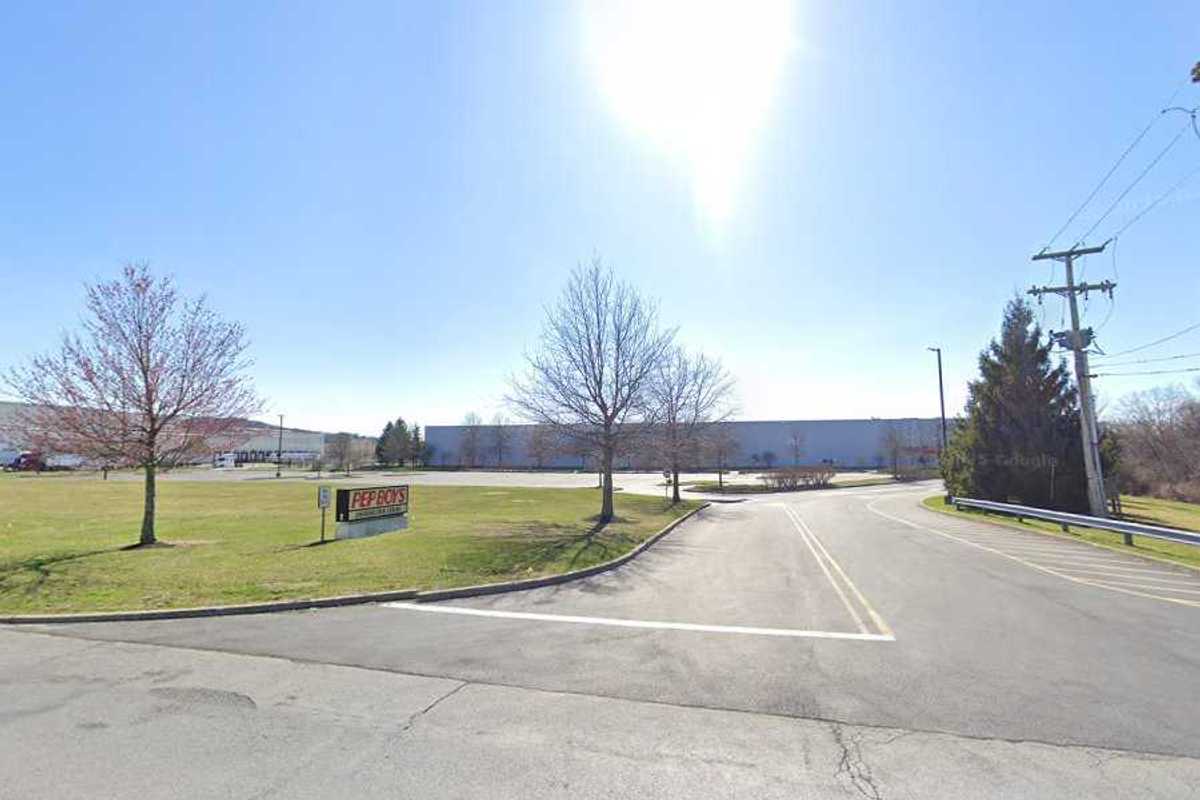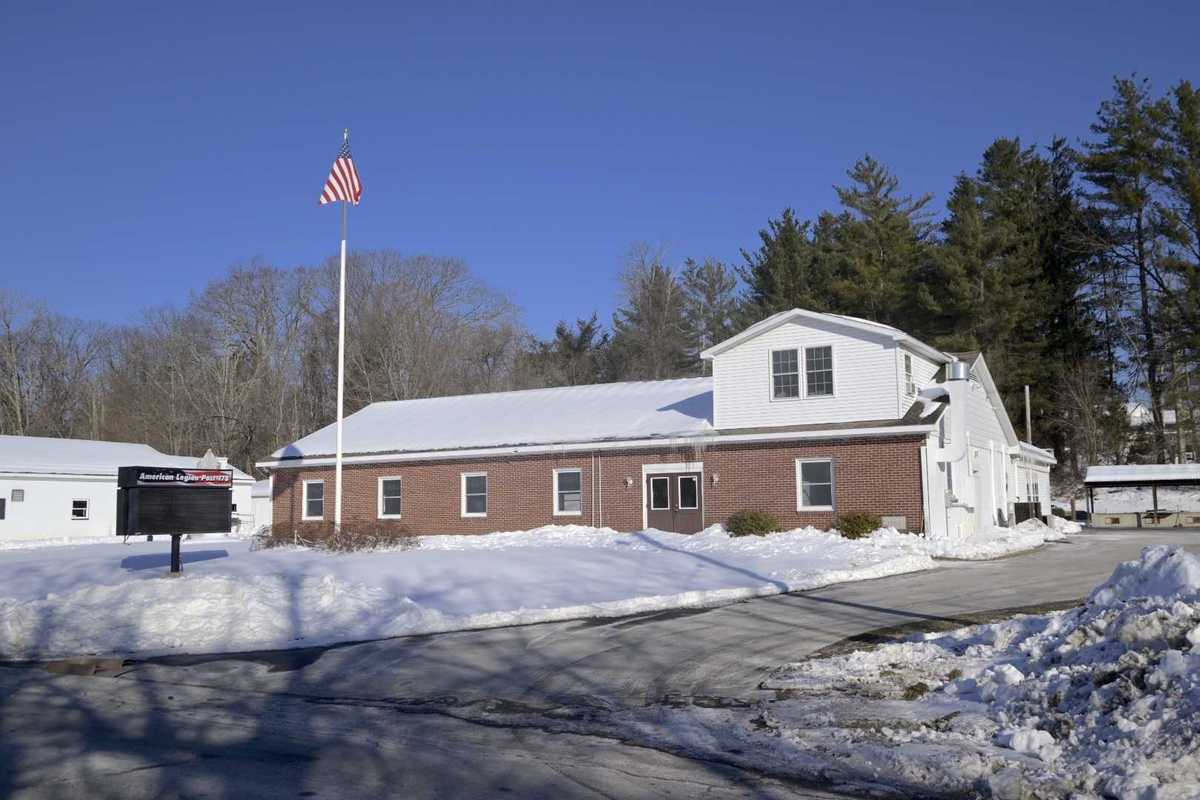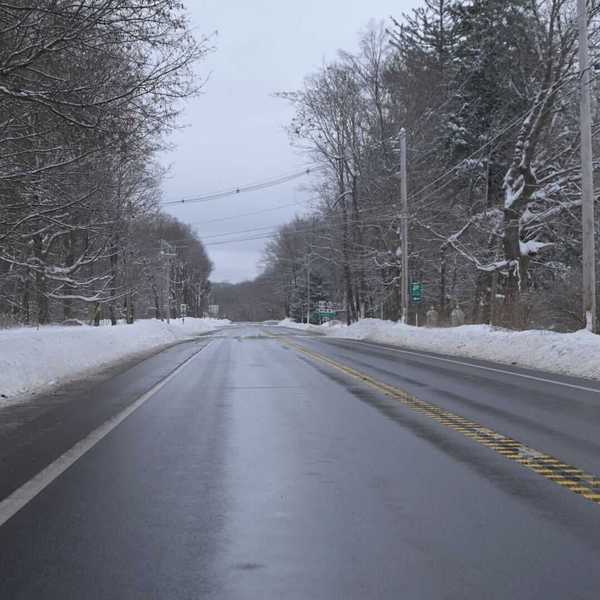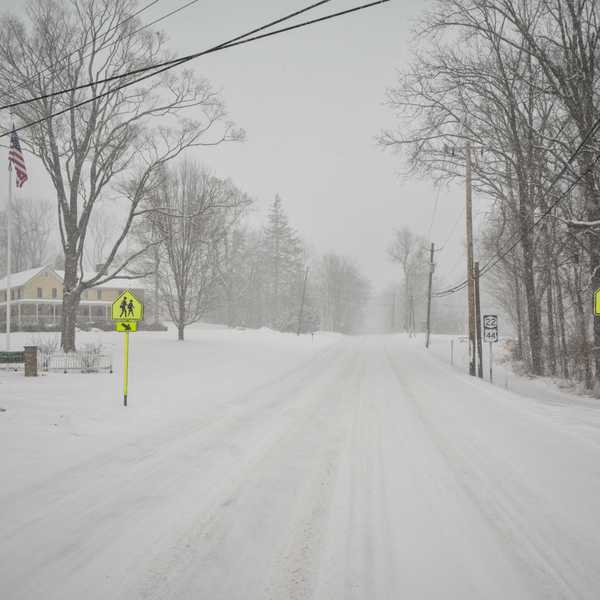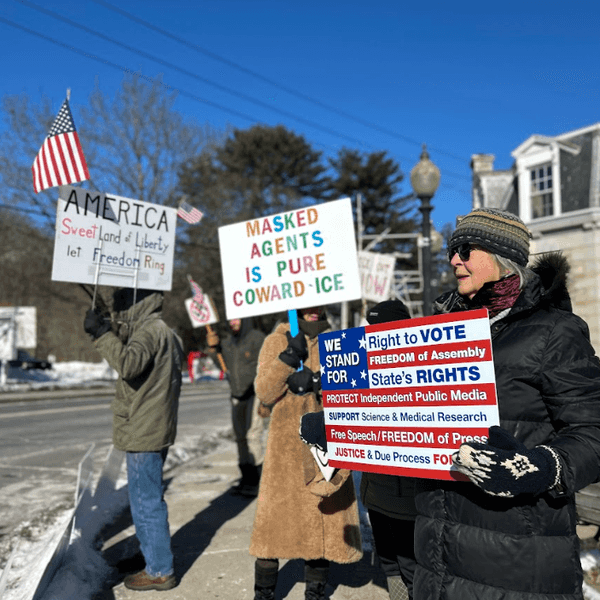Latest News
The North East Community Center’s Early Learning Program shuttered abruptly last December after nonprofit leadership announced that significant financial strain required the program’s termination. NECC Executive Director Christine Sergent said the organization remains open to reconsidering childcare in the future.
Photo by Nathan miller
PINE PLAINS — Dutchess County Legislator Chris Drago, D-19, will host a public forum later this month to discuss ongoing childcare challenges — and potential solutions — facing families in Northern Dutchess. The discussion will take place on Wednesday, Feb. 25, from 6 to 7:30 p.m. at The Stissing Center in Pine Plains and is free and open to the public.
Drago said the goal of the forum is to gather community feedback that can be shared with county and state stakeholders, as Dutchess County positions itself to benefit from $20 million in state funding as part of a new childcare pilot program.
Earlier this month, Dutchess County was named as one of three counties in New York selected to participate in the pilot, which was announced by Gov. Kathy Hochul as part of a broader plan to bring universal childcare to the state. The funding is expected to support expanded childcare capacity, with a focus on infants and toddlers.
“We are inviting people who have expressed concern about childcare in Northern Dutchess, along with local school and faith-based program leaders, nonprofit organizations, and elected officials,” Drago said in a statement, calling childcare solutions a “critical need in our communities.”
The event follows the recent closure of the North East Community Center’s Early Learning Program (ELP), which left a number of families in Millerton and surrounding towns without childcare options — and left teachers without jobs. NECC announced the closure of ELP in early November and officially closed its doors on Dec. 18, 2025.
In a signal of support, Assemblymember Didi Barrett — who represents a largely rural district that covers parts of Dutchess and Columbia Counties — joined childcare advocates in the state capital last week to hear concerns from constituents. Barrett has praised recent state investments aimed at addressing childcare gaps, saying she will fight to ensure funds reach rural parts of her district.
“I am committed to ensuring that this is truly universal childcare and that the program addresses the childcare needs in Millerton, North East, and the surrounding communities, especially with the recent closure of the North East Community Center’s Early Learning Program,” Barrett said.
In December, Barrett secured $1 million in funding to expand childcare services at Dutchess Community College, and said she is committed to ensuring that new state funds will benefit those in rural communities.
Keep ReadingShow less
A Google Street View image of the former Pep Boys warehouse on Elizabeth Drive in Chester, New York, where the U.S. Department of Homeland Security plans to
maps.app.goo.gl
A proposed deportation processing center in Chester, New York, has sparked widespread backlash from local residents and advocates across the Hudson Valley.
The Department of Homeland Security issued a public notice on Jan. 8 outlining the plan, which calls for Immigration and Customs Enforcement to purchase and convert a warehouse at 29 Elizabeth Drive in Chester “in support of ICE operations.” The facility, located in Orange County, is a former Pep Boys distribution warehouse that was previously used to store tires and auto parts.
More than 400 people appeared at the Chester Village Board meeting on Jan. 12, according to a public letter addressed to ICE on the Village of Chester’s website, villageofchesterny.gov.
Village officials issued the letter on Jan. 16, formally opposing the proposal. The letter cited concerns about strain on the village’s sewer system, incompatibility with local zoning laws and a restrictive covenant governing the site.
Millerton village trustee Katie Cariello is among the local voices of opposition to the facility, sharing in a statement that she condemns the proposed detention center.
Dutchess County Legislator Chris Drago, D-19, also opposes the plans. “We must stop the development of an ICE detention center right in our backyard,” he said, in a statement. “With the horrific news continuing to come out of Minneapolis, we need to continue to make our voices heard and protect our neighbors.”
New York Senator Michelle Hinchey also denounced the plans. “The ‘warehousing’ language used by your agency to describe the detainment of human beings, and the subsequent mission of this proposal, is dehumanizing, abhorrent, and signals clearly the way your administration views American citizens and immigrants alike,” Hinchey said in a statement directed at the President.
She called the proposed facility a threat to the safety, values, and economic stability of Chester and the broader Hudson Valley community.
More than 20,000 people have signed a petition opposing the proposed facility in Chester that is sponsored by U.S. Rep. Pat Ryan, whose district includes Dutchess County, according to a statement from his office issued Thursday, Jan. 29.
The Jan. 8 public notice was required by an executive order dating back to President Jimmy Carter’s administration pertaining to floodplain management. The plan includes changes to the building’s interior, installation of a guard building, an outdoor recreation area, utility and stormwater improvements, and fence line changes, according to the public notice.
The proposed facility in Chester is part of a larger plan to adapt warehouses and industrial sites across the country into facilities that would hold more than 80,000 people total in a hub and spoke model meant to improve the efficiency of ICE’s deportation system, according to an ongoing Washington Post investigation originally published in December citing internal DHS documents.
Additional reporting by Aly Morrissey.
Keep ReadingShow less
Millerton's American Legion Post 178 on Route 44. Bob Jenks, who is involved in leadership at the legion, said the building could operate as an emergency warming shelter if North East or Millerton officials reached out with a need for one.
Photo by Nathan Miller
Much of New York state was pummeled with snow in late January, followed by a prolonged stretch of below-freezing temperatures and wind chills dipping as low as negative 15 degrees, prompting cold weather advisories urging people to stay indoors.
Despite the extreme cold, there are few clearly designated warming centers in the rural areas of northern or eastern Dutchess County, leaving residents in need with limited nearby options.
Rural communities like Millbrook and North East circulate information from the county’s emergency winter protocol, known as Code Blue, which provides assistance with shelter placement when temperatures fall below freezing. Many of those services, however, are concentrated in more densely populated areas such as the City of Poughkeepsie.
For people experiencing homelessness in rural communities — where public transportation is limited or nonexistent — reaching those resources can be difficult.
Millbrook Police Chief Keith Dworkin said the village does not have a significant homeless population and that officers rarely encounter people in need of a place to stay. When they do, he said, it’s typically during the summer and involves people passing through the area.
“If we came across someone who was homeless and needed access, we would bring them to the City of Poughkeepsie,” Dworkin said. “We would certainly do everything in our power to ensure they can go somewhere warm where they are taken care of.”
In Dover Plains, Supervisor Richard Yeno said there is no official process or procedure in the town, but they “handle it as it comes,” responding to emergencies or power outages in real time.
In the past, Yeno said, the Dover Plains Library served as a warming and cooling center, but needs a new generator to continue providing the service. In the meantime, the Dover Town Hall serves as a stop-in center with its generator, allowing people to warm up, fill jugs of water and charge devices. The space is too small to be used as a shelter, Yeno said. “It is the way it is,” he said. “It’s been like that out here in the valley forever, but we’re working on it.”
Millerton emergency highlights limits of rural warming options
Those gaps became tangible in Millerton last weekend, when a pre-dawn emergency forced residents out into dangerously cold conditions.
Last Saturday’s carbon monoxide leak at 7-9 Main St. that displaced as many as 18 residents, including four children, led to a swift, community-wide response even in the absence of a formal emergency plan.
Millerton firefighters opened their doors to keep families warm, community members stepped in to help on the scene and the American Red Cross assisted displaced residents with temporary housing. An overnight warming shelter, however, was not part of the response.
The incident has renewed local discussions about whether rural communities should formalize cold-weather shelter plans. North East officials say county funds may be available to support warming centers, raising questions about who could step up locally to provide a location and staffing.
Town Councilwoman Meg Winkler raised the issue at a January Town Board meeting, saying she has been working with the Northeastern Dutchess Tri-town Coalition — a group focused on economic development and inclusive housing in Amenia, Pine Plains and North East — to better understand what options might be available for the region.
“I’d like to find a solution instead of this coming up every time we have a weather event and then not being able to help people,” Winkler said. “There should be a go-to solution put in place.”
Bob Jenks of Millerton’s American Legion Post 178 said the Legion has an unofficial agreement with the village and town to serve as a warming or cooling center when needed. He said no formal protocol exists outlining when or how that process would be activated.
Jenks said the Legion is one of the few places in town with a generator that can support longer durations if there was a widespread power outage. Though there are no beds, it does have a number of cots in addition to kitchen facilities for limited overnight stays.
“If something happens, the village and town know that we’re prepared to help, they just have to call up,” Jenks said.
The last time the Legion opened its doors as a warming center was during a significant snow storm before the COVID-19 pandemic.
“We are a veterans service organization and we are there for the community,” Jenks said. “One of our main pillars is community involvement and engagement.”
Keep ReadingShow less
Classifieds - February 5, 2026
Feb 04, 2026
Help Wanted
PART-TIME CARE-GIVER NEEDED: possibly LIVE-IN. Bright private STUDIO on 10 acres. Queen Bed, En-Suite Bathroom, Kitchenette & Garage. SHARON 407-620-7777.
The Scoville Memorial Library: is seeking an experienced Development Coordinator to provide high-level support for our fundraising initiatives on a contract basis. This contractor will play a critical role in donor stewardship, database management, and the execution of seasonal appeals and events. The role is ideal for someone who is deeply connected to the local community and skilled at building authentic relationships that lead to meaningful support. For a full description of the role and to submit a letter of interest and resume, contact Library Director Karin Goodell, kgoodell@scovillelibrary.org.
Weatogue Stables in Salisbury, CT: has an opening for experienced barn help for Mondays and Tuesdays. More hours available if desired. Reliable and experienced please! All daily aspects of farm care- feeding, grooming, turnout/in, stall/barn/pasture cleaning. Possible housing available for a full-time applicant. Lovely facility, great staff and horses! Contact Bobbi at 860-307-8531. Text best for prompt reply.
Services Offered
COLBYS TREE SERVICES: provides reliable tree removal, trimming, and storm cleanup. Locally owned and fully insured, we’re committed to safe work, honest service, and keeping your property looking its best. CALL/TEXT 860-248-9456.
Hector Pacay Landscaping and Construction LLC: Fully insured. Renovation, decking, painting; interior exterior, mowing lawn, garden, stone wall, patio, tree work, clean gutters, mowing fields. 845-636-3212.
PROFESSIONAL HOUSEKEEPING & HOUSE SITTING: Experienced, dependable, and respectful of your home. Excellent references. Reasonable prices. Flexible scheduling available. Residential/ commercial. Call/Text: 860-318-5385. Ana Mazo.
Real Estate
PUBLISHER’S NOTICE: Equal Housing Opportunity. All real estate advertised in this newspaper is subject to the Federal Fair Housing Act of 1966 revised March 12, 1989 which makes it illegal to advertise any preference, limitation, or discrimination based on race, color religion, sex, handicap or familial status or national origin or intention to make any such preference, limitation or discrimination. All residential property advertised in the State of Connecticut General Statutes 46a-64c which prohibit the making, printing or publishing or causing to be made, printed or published any notice, statement or advertisement with respect to the sale or:rental of a dwelling that indicates any preference, limitation or discrimination based on race, creed, color, national origin, ancestry, sex, marital status, age, lawful source of income, familial status, physical or mental disability or an intention to make any such preference, limitation or discrimination.
Houses For Rent
3 BR/1 BA: fully furnished/fully equipped raised ranch style home in Canaan, available February 1 to June 30. Great opportunity to experience the area! $2600/month. 860-671-8753 or contact Elyse Harney Real Estate.
Keep ReadingShow less
loading
